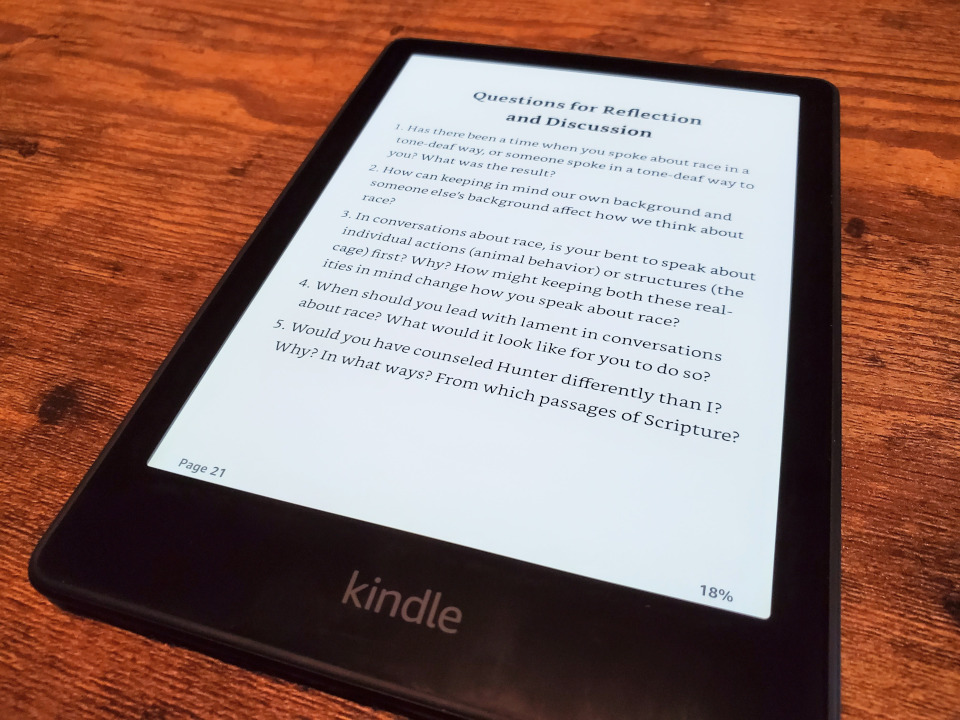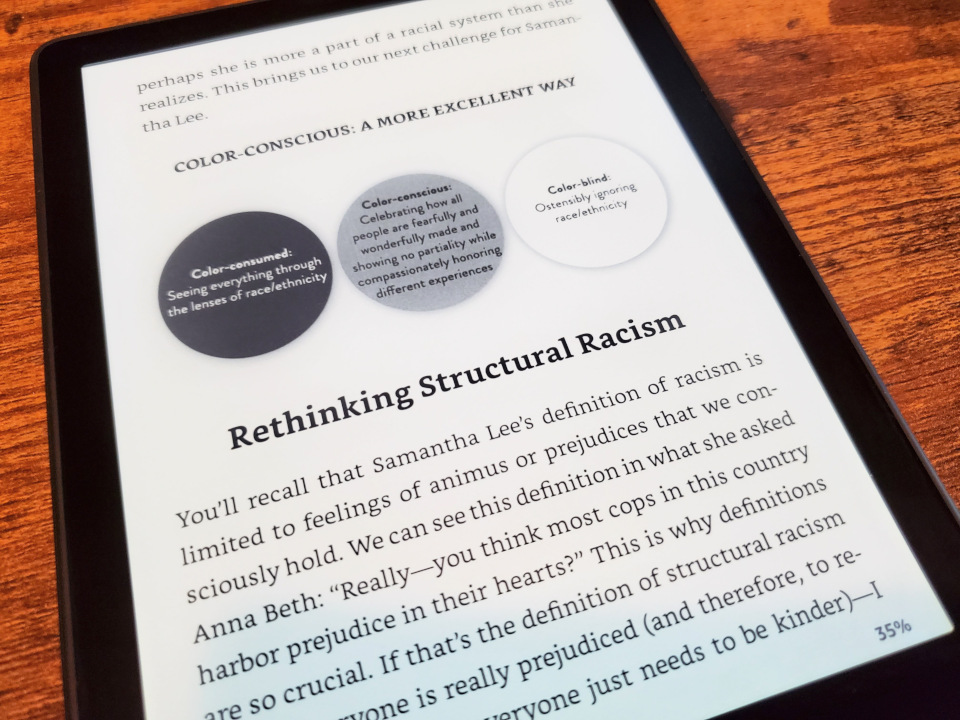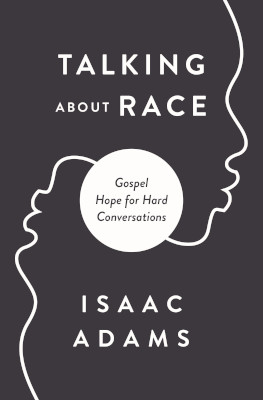If Jesus did indeed die for people from every tribe, tongue, and nation, we should happily and humbly hear from every tribe, tongue, and nation.
Talking About Race: Gospel Hope for Hard Conversations, by Isaac Adams, is a timely and important book. In a time when racial tensions are running high, Adams provides a thoughtful and biblical framework for how to have conversations about race.
The book begins with a fictional scenario of a racially charged tragedy. Adams then uses this scenario to explore the different perspectives and responses of the characters. I think this narrative approach helps the reader to understand the complexity of the issue and the importance of listening to each other with empathy.
The problem of churches in America seems to be not that we lament too much, but that we lament too little.
Adams then goes on to discuss the gospel’s implications for racial reconciliation. He argues that the gospel is the only power that can truly overcome the divisions that race has created. He also provides practical advice for how to have conversations about race in a way that is both loving and truthful, even offering real questions to ask ourselves and each other.
The historical question: What happened?
The judicial question: Was it right?
The ethical question: What should we do about it, if anything?

One of the things that I appreciated most about Adams’ book is his honesty and transparency. He doesn’t shy away from the difficult aspects of racial conversations. He also acknowledges his own biases and shortcomings, making the book feel authentic and relatable.
Some of us need to realize that we argue more with the caricature in our mind than the person in our presence.
Another strength of the book is Adams’ emphasis on the importance of gospel hope. He reminds us that the gospel is not just about our individual salvation. It is also about the ultimate transformation of all things, including the reconciliation of all people. This hope gives us the motivation to persevere through difficult conversations and to work towards racial justice. And Adams calls on all Christians, especially pastors, to break their silence when it comes to issues of racial injustice: Pastors, when it comes to justice, the Bible is not silent. When it comes to the image of God, the Bible is not silent. When it comes to love, the Bible is not silent.
Isaac Adams also calls on white Christians to share faith spaces with people of color, noting that when evangelical churches do have some ethnic diversity, it’s usually that minorities attend predominantly white churches, not vice versa.
Until white believers can be in the minority, conversations about race will continue to be difficult.
Why is the integration only happening in one direction? That is, why is it that minorities join white churches, but white people by and large do not join churches where they are in the racial minority?
Overall, I highly recommend Talking About Race to anyone who wants to learn how to have more productive and loving conversations about race. It is a valuable resource for anyone who needs to know the ugly truths of historical asymmetry and color blindness. I appreciate the narrative approach that Adams takes in his book, as well as his gentle tone when addressing heated topics, but this book hits hard—in a very good way.

Here are some specific things that I liked about the book:
- Adams’ writing is clear, concise, and engaging.
- He provides a good balance of biblical teaching, historical context, and personal stories.
- He emphasizes the importance of gospel hope for racial reconciliation.
- He provides practical advice for how to have conversations about race in a way that is both loving and truthful.
If you are looking for a book that will help you to better understand the issue of race and how to talk about it in a constructive way, I highly recommend Talking About Race: Gospel Hope for Hard Conversations by Isaac Adams.
The scandal of the gospel isn’t that Christians can commit racism; the scandal of the gospel is that Christ forgives those who repent of the sin of racism. And to eschew talking about race is to hold back that great hope.
